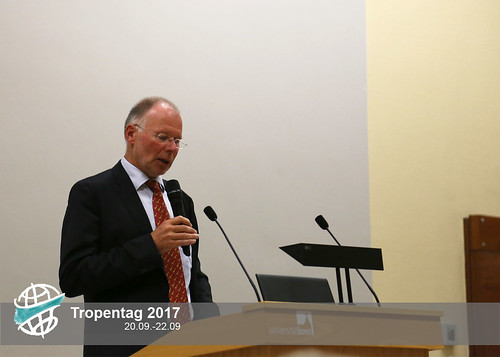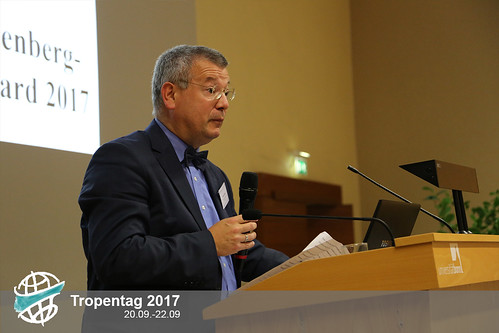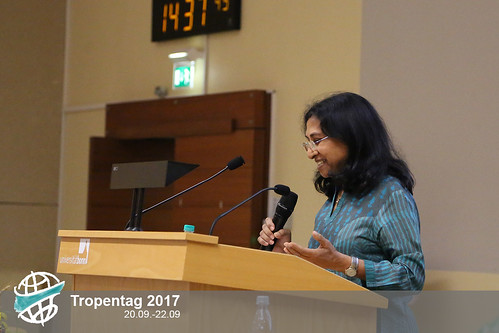Agroecology

“Smallscale Organic Agriculture is a Niche”
Mon, 10/02/2017 - 16:17 — marlemke“Small-scale organic agriculture is a niche” said Hans-Joachim Preuß, the managing director of GIZ, the largest development aid agency in Germany. Apparently, the future of development is large-scale industrial agriculture and big investment, according to the agenda of GIZ. “Smallscale organic agriculture won’t save the world”, said Hans Braun, director of the CGIAR Research Program on Wheat at CIMMYT, a research and training institution focused on wheat and maize. I wondered, what happened to sustainable agriculture?

The excitement and expectations of the participants of Tropentag about this year’s theme “Future Agriculture: Social-ecological transitions and bio-cultural shifts” didn't flag and were mostly met throughout the week, at least until the last two keynote speakers. Braun suggested further intensification of grain cultivation, as well as greater collaboration with the GIZ. Braun’s statements were reinforced by Preuß, who said organic products were to “only" address a “niche market”.
Rethinking the Way We Farm
Fri, 09/22/2017 - 10:04 — mustamin.fadliKeynote speaker Bina Agarwal, Professor of Development Economics and Environment at the Global Development Institute, University of Manchester, elaborates on the three areas, or pillars, any pathway towards a future agriculture needs to address. In the first video, Professor Agarwal provides an overview of her three pillars, technology, ecology, and institutions.
In the second video, she describes in more detail group farming as a promising institutional innovation.
Young Scientists Win Award for Fight Against Hunger
Wed, 09/20/2017 - 19:53 — giulia.rotanodari “Genome based identification of heterotic pattern in rice”, Ulrike Beukert, University of Martin-Luther-University of Halle-Wittenberg
“Genome based identification of heterotic pattern in rice”, Ulrike Beukert, University of Martin-Luther-University of Halle-Wittenberg
Rice is one of the most important staple crops in the world. A lot of research has been conducted, but more investigations are needed in order to optimize land use by maximizing yield. Ulrike Beukert, a MSc. student at the University of Martin-Luther-University of Halle-Wittenberg, conducted an investigation on boosting yield by exploiting heterosis in rice. Results show that heterosis provides enhanced yield stability and increased abiotic and biotic stress resistance.
The Future (of Ag) is female (Cooperation)
Wed, 09/20/2017 - 16:51 — megreslerFollowing a series of male speakers, leading expert Professor Agarwal guided her audience in considering alternative pathways forward in the future of agriculture. "We cannot wait for technological fixes… we need institutions based and built upon farmer cooperation," emphasized Professor Agarwal in her keynote address.
Referring to group farming cooperatives and joint liability groups as solutions, this poet and policy advocate highlighted some of the widely-discussed topics within the field of agroecology: the feminization of agriculture as a global phenomenon, the changes it will bring, and ways to increase productivity without sacrificing social inclusion.
I had a personal desire for Professor Agarwal to have gone one step further in her talk. Integrating group farming cooperatives drastically enhance productivity along with equity in smallholder agroecosystems in the Global South. However, what we need now are clear and developed movement towards implementation. She played it safe, when her speech could have been a fire starter, to spark discussion.





